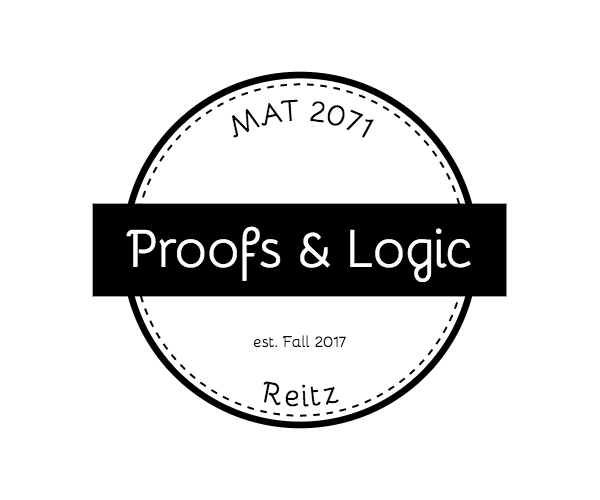Tag: .999
Handy Links
 Logic on Math StackExchange
Logic on Math StackExchange
- Are rules of inference in first order theory proven? April 8, 2025I am currently reading Shoenfield's book as an introduction to logic, and towards the ending of chapter two he states the three properties of a first order language:- We can now define the class of formal systems which we are going to study. A first-order theory, or simply a theory, is a formal system T […]Abel Marnk
- Can $\mathsf{PA}$ prove the Completeness Theorem for $\mathsf{PA}$? April 8, 2025As title states, I'm wondering whether $\mathsf{PA}$ could "prove" the Completeness Theorem for, well, $\mathsf{PA}$ (or other similar enough theories). I know that $\mathsf{PA}$ by itself is totally unable to prove the regular Completeness Theorem, as it seems to make use of Zorn's Lemma and other stronger axioms. I think I've seen it stated that […]Sho
- A question on whether the following sentence is statement or not [duplicate] April 7, 2025A statement is a sentence which is either true or false and there is no ambiguity in deciding if it is true or false. It will rain in London tomorrow. I came to know that this sentence is not a statement because it is not having a single truth value. For me I may feel […]user1382316
- Mathematical Logic: Good New/Classic Reference [closed] April 7, 2025The question of similar type have been posted earlier (see this). However, my only concern here is: Are there new books on same subject, which are readable for young scholar (just completed 12)? Book for? The book I am looking is for students who completer 12th (with most part as computational mathematics, i.e. those who […]Maths Rahul
- Are the natural numbers undefinable? [closed] April 6, 2025I have an argument below that the natural numbers are undefinable. It's my understanding of these old Scott Aaronson lecture notes: https://www.scottaaronson.com/democritus/lec3.html. There is probably an error (my fault, not Aaronson's) -- can someone correct me? Peano Arithmetic defines the natural numbers starting at $0$, and builds from there. Consider an injective successor function $s(n)$. […]Tyler Seacrest
- Eliminate bounded quantifier in arithmetic by adding finitely many rudimentary functions April 6, 2025In set theory, we can add function symbols of Godel functions and a constant symbol of the empty set, and extend the theory with their rudimentary (that is, $\Delta_0$) definitions as axioms. The resulted theory can eliminate those bounded quantifiers in every $\Delta_0$ set theory formulas, since every $\Delta_0$ separator is now composition of those […]欧泡加油努力
- Is there a standard notation in mathematics for fallback/default evaluation? If not, here’s a proposal. [closed] April 6, 2025I’ve often encountered a recurring pattern in both mathematics and computer science: the need to use a primary value if it’s defined, but fall back to a secondary value otherwise. In programming, this is captured with operators like: a ?? b (null-coalescing) a ?: b (ternary shortcut) COALESCE(a, b) in SQL But in mathematics, we […]Ayush
- Trying to understand entailment v/s implication [duplicate] April 5, 2025I asked ChatGPT what is a weak / strong condition in the context of Floyd logic. It told me (paraphrasing)... A condition $A$ is stronger than $B$ if $A \models B$, i.e., whenever $A$ is true, $B$ is also true. Where $\models$ is the symbol for entailment. $x = 5$ is stronger than $x > […]Autodidact
- finite intersection condition- Hodges April 5, 2025In Hodges'"Model Theory", Lemma 4.2.7 shows that for $Sym(\omega)$ we have a certain property. Which others automorphisms groups have this property? In particular, I'm interested to find theory with countable models that satisfy a weaker version of this property: Let $G$ an automorphisms groups of a countable structure M. Let $a,b$ finite subsets of M […]Focaccia
- Does it seem that rule of inference does not work in some cases, even though conclusion is valid? April 5, 2025we have these two assumptions: “Logic is difficult or not many students like logic.” “If mathematics is easy, then logic is not difficult.” By translating these assumptions into statements involving propositional variables and logical connectives, can we determine weather this statement is valid conclusion of these assumptions using rules of inference. That if not many […]Emzar Chichoevi




Recent Comments